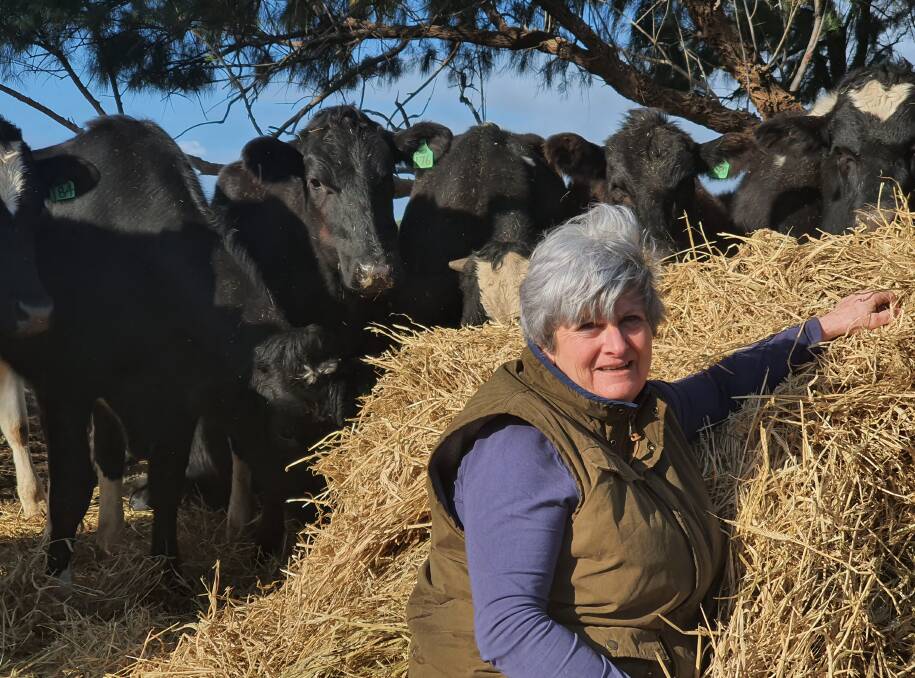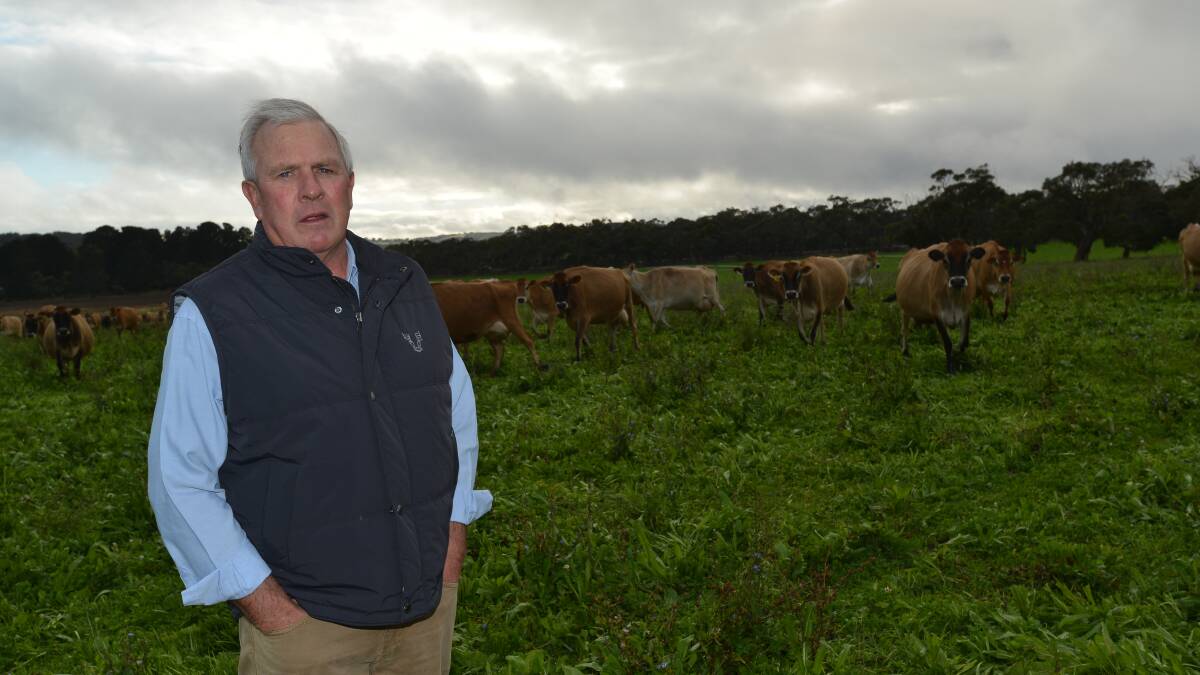
A decade on from the launch of Operation Poach to tackle livestock theft in SA, some are questioning whether record-breaking livestock prices mean it is time to strengthen policing levels.
According to SA Police, there were 63 reports of livestock theft in 2020-21, down from 97 in 2019-20, but these figures may represent only a fraction of the crimes committed, with many cases of missing stock unreported.
In the past three years, seven matters have been referred for prosecution.
RELATED: Thieves target SA farms
RELATED: Two men arrested for cattle theft
Despite the drop in theft reports in the past financial year, Mount Compass dairyfarmer Robert Brokenshire has renewed his calls for the reintroduction of a "small but specialised" stock squad, which operated in SA until about 25 years ago.
He first took up the fight for this when he was a Member of the Legislative Council.
"If it is good enough for other states, why is it not good enough for us, given we are aiming to have a $23-billion agricultural industry in SA by 2030?" he said.
"I accept there are pressures on the policing budget, but the value of sheep and cattle has gone up exponentially - a ewe is worth $300 or more, a steer is worth $1500 or more and a breeding cow is $2000 to $4000, so we are talking big money if they disappear."

Under Operation Poach, SAPOL has 19 Agricultural Liaison Officers attached to rural police stations across SA. Their role is to liaise with victims of stock theft, undertake inspections and speak to neighbours and the local industry.
A SAPOL spokesperson said they were "committed to reducing the incidents of livestock theft and maintained close working relationships with interstate police jurisdictions to identify trends in rural crime and develop prevention strategies".
But Mr Brokenshire says stock rustling is a specialised area that requires an active police presence at saleyards and close monitoring of livestock transactions, including online sales.
At the very least, he wants a transparent review into Operation Poach, which he says was promised when it was established.
"If there was more than $1 million in retail theft in Adelaide, there would be a specialised unit put together quickly to catch the perpetrators - the likely impact of theft to primary producers is likely far more," he said.
Murraylands farmers Coral Stephenson and Anthony Cheso also support a dedicated stock squad, saying reports of theft needed individual attention rather than being handled by multiple officers.
Mrs Stephenson says they reported to SAPOL that 10 pregnancy-tested in-calf Angus-Friesian heifers were missing from their Wellington property on February 16 this year.
SAPOL initially disputed that the couple had reported any stock theft in February, but Stock Journal has since seen a signed affidavit supporting Mrs Stephenson's claims.
SAPOL has since declined to comment further on the matter.
Mrs Stephenson, who has been dairy farming for 30 years, and Mr Cheso, who is a third-generation dairy farmer, say they have been frustrated by a lack of progress in what they believe is a clear cut case of stock theft.
Many times when I have rung the station or emailed asking for updates, it seems our case is only a distraction.
- Coral Stephenson
They were particularly disappointed to have been told "to just claim them (the cattle) on insurance" as if they were stolen jewellery or a stolen TV.
"Many times when I have rung the station or emailed asking for updates, it seems our case is only a distraction," she said.
Their 2.5-year-old heifers were worth an estimated $23,000, but Mrs Stephenson says their true value is much higher.
"We never had any intention of selling them, I raised them from day-old calves and they were going into our herd for a lifetime of breeding - how do you put a value on that?" she said.
"We just want our cows back."
She also wants to see closer collaboration between PIRSA, which administers the Livestock Act 1997, and SAPOL.
A SAPOL spokesperson said they were "working closely with key stakeholders in the agricultural industry to reduce the incidents of stock theft and actively engage with farmers and property managers to encourage 'target hardening' of property and reporting of rural crime in a timely manner".
This enables police to take immediate action and to deploy resources in response to evolving crime trends.
Livestock SA president Joe Keynes said the organisation would continue to work with SAPOL to ensure they "remain on top of it".
"We know SAPOL are strongly focused on all rural theft, whether that is a chainsaw stolen from a shed or sheep stolen from a paddock," he said.
"If every police officer on the beat has some investigatory powers around rural theft that is a wide area covered, but there does need to also be specific resources that understand the PIC (property identification code) process to make informed investigations into livestock theft."
- Any suspicious behaviour should be reported to police immediately on 131 444. Information regarding theft of stock, fuel, equipment and illegal trespass can be reported to Crime Stoppers on 1800333000 or online.
Start the day with all the big news in agriculture. Sign up here to receive our daily Stock Journal newsletter.

